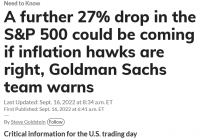tbh
Adequately Gruntled Member
- Joined
- Jun 12, 2017
- Messages
- 3,245
- Likes
- 5,910
Thank you. How much money do I need to have to begin? Any suggestions or what you are investing in as far as ETF? And what do you mean by stock splits?
A few points about ETFs to keep in mind:
- They all have their own expense ratios (ER), which the fund managers (whether passive or active) take as compensation.
- Different ETFs exist for different purposes. For example, VOO is an index fund (generally tracks the market's performance over time) whereas something like JEPI is geared toward income/dividends at the expense of growth (generally speaking).
- Depending upon your time horizon/situation, you can gear your ETF selections to reflect your goals. For example, in addition to a basket of single-company stocks I am holding two ETFs currently: SCHD (a dividend etf with a low ER that has offered solid dividend growth and appears to have a good methodology for picking the stocks it carries) and FUTY (because I prefer to go that route instead of picking individual utility companies...i.e. let someone else do the choosing/periodic rebalancing)
- As alluded to above, there are sector ETFs (consumer staples, utilities, energy, etc) that can broaden your coverage/diversity in a given sector of the market. I've found that some have higher ERs, so as in all cases, do your due diligence research before hopping in.
Best of luck! I just got started on this journey last year, so I'm still learning as well. The folks here on this thread like have been very helpful and informative.



